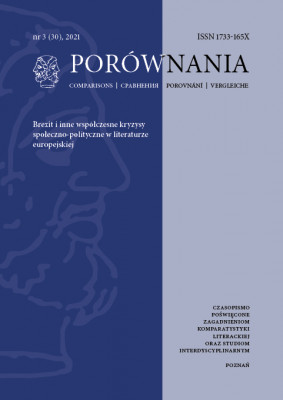From Unparalleled “Greatness” to Predictable Insularity. A Composite Sketch of “Warped Britishness” as Drawn in Selected Works of Contemporary English Fiction
Brexit, as seen from the present perspective, is seemingly a success story. Taking into account a myriad of voices expressed in the public domain over the past few years, it is legitimate to make a cautious claim that some of the expectations people shared before/during the referendum have been inflated and deflated in the post-plebiscite reality. In 2016, across the majority that voted for the divorce, a growing consensus on the soundness and solidity of pro-Leave arguments about Britain being in crisis was seen. The proponents of change had endorsed the policy of restoring a sense of national dignity. That mode of reasoning, though still present within current “British” mindsets, has been confronted with the “unplanned” turbulence of national (re)adjustment. The whole process of bidding farewell to the European Union has led to sentiments of uncertainty/anxiety/regret, rather than to the anticipated sense of satisfaction/relief. Therefore, it seems both vital and interesting to juxtapose the passion about restoring people’s trust in Britishness/Englishness, and its “exceptionality” with more sobering projections of a new post-Brexit world. In order to discuss the consequences of this self-inflicted condition, I will here elaborate on selected English literary texts. They feature authors who draw conclusions running parallel to Anderson’s assumptions that in times of crisis a general predilection for self-deluding (re)constructions of collective identity can be observed, which are variously expressed in a merely referential, subversive or satirical manner.
| Article Title | Type | Size |
|---|---|---|
| 04 Bartnik | [pdf] | [171 KB] |
